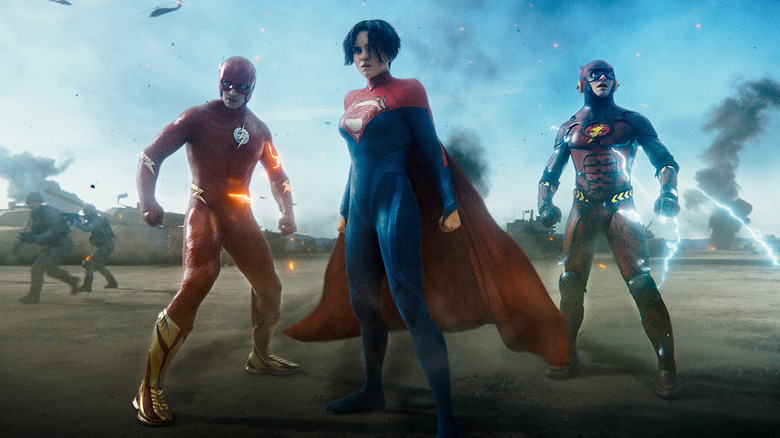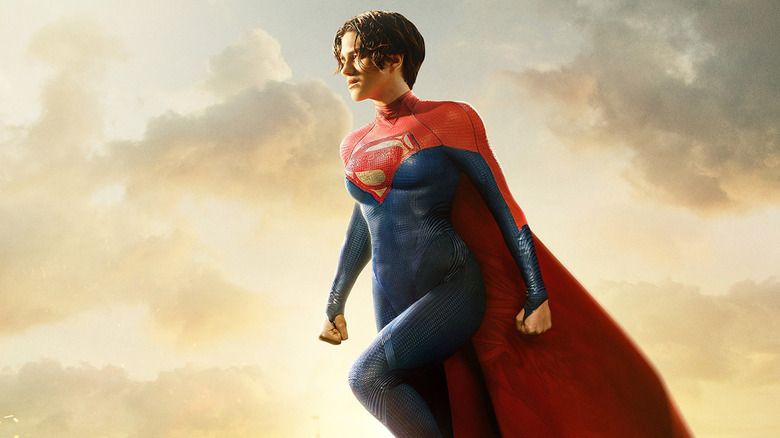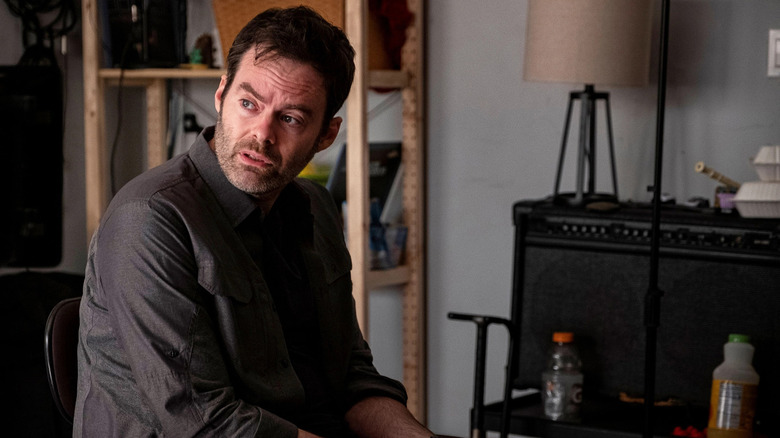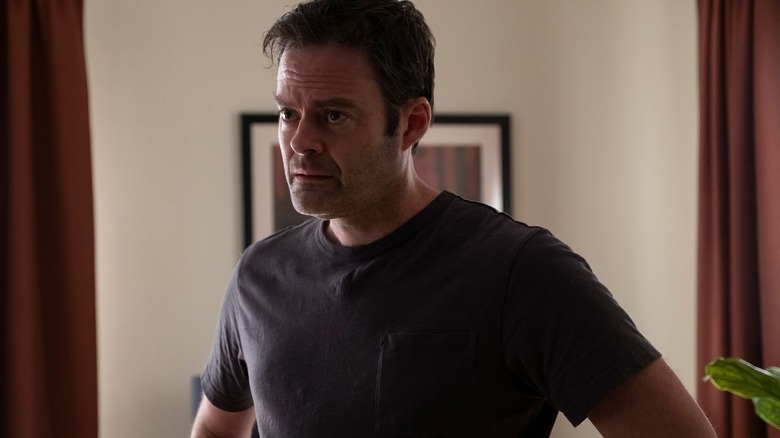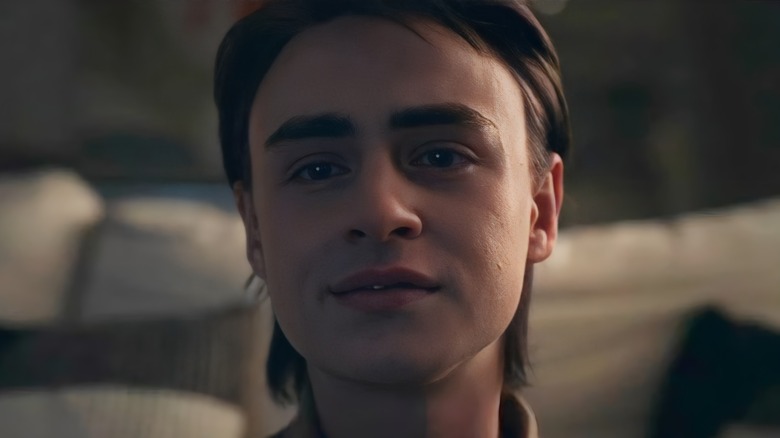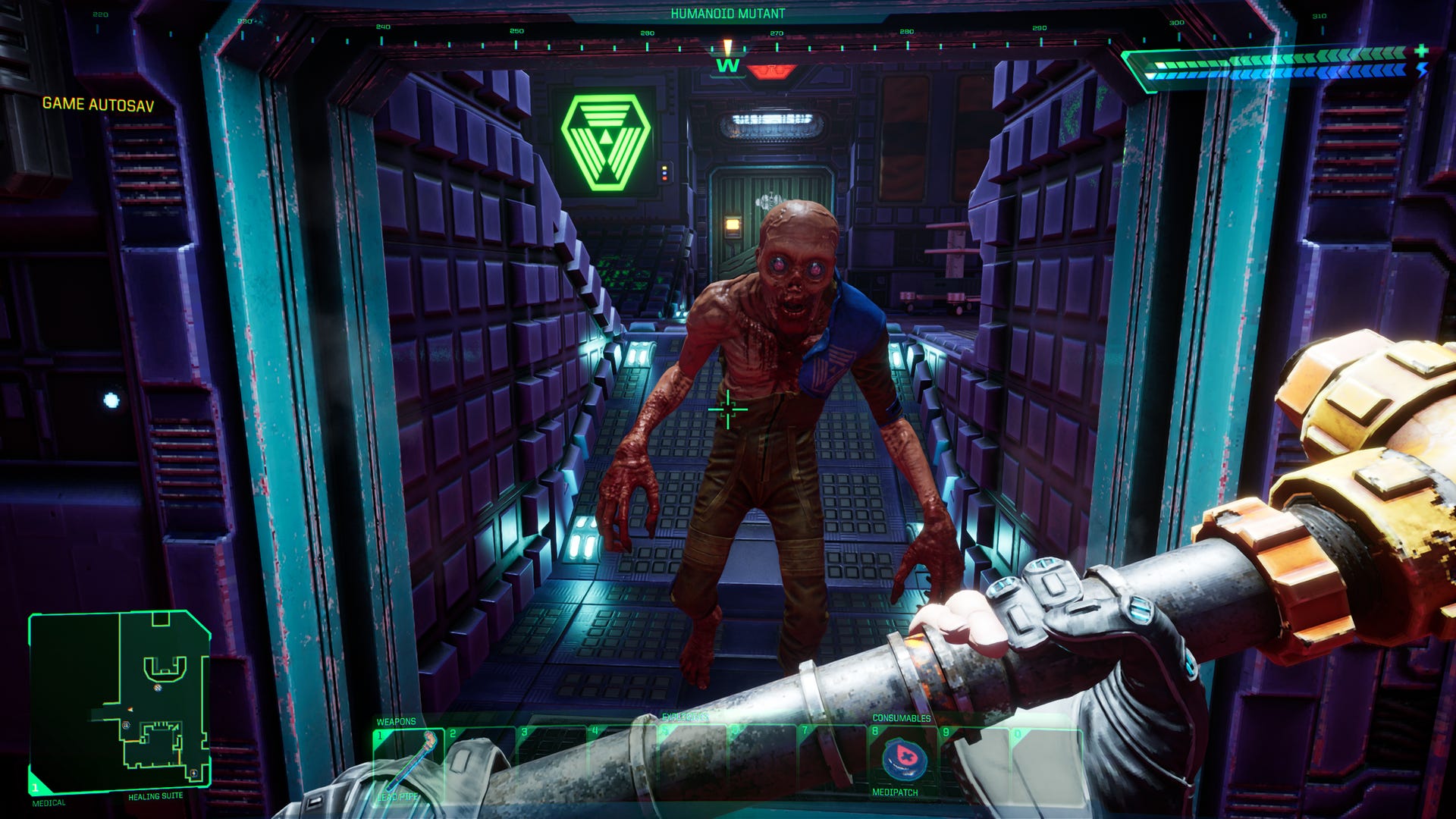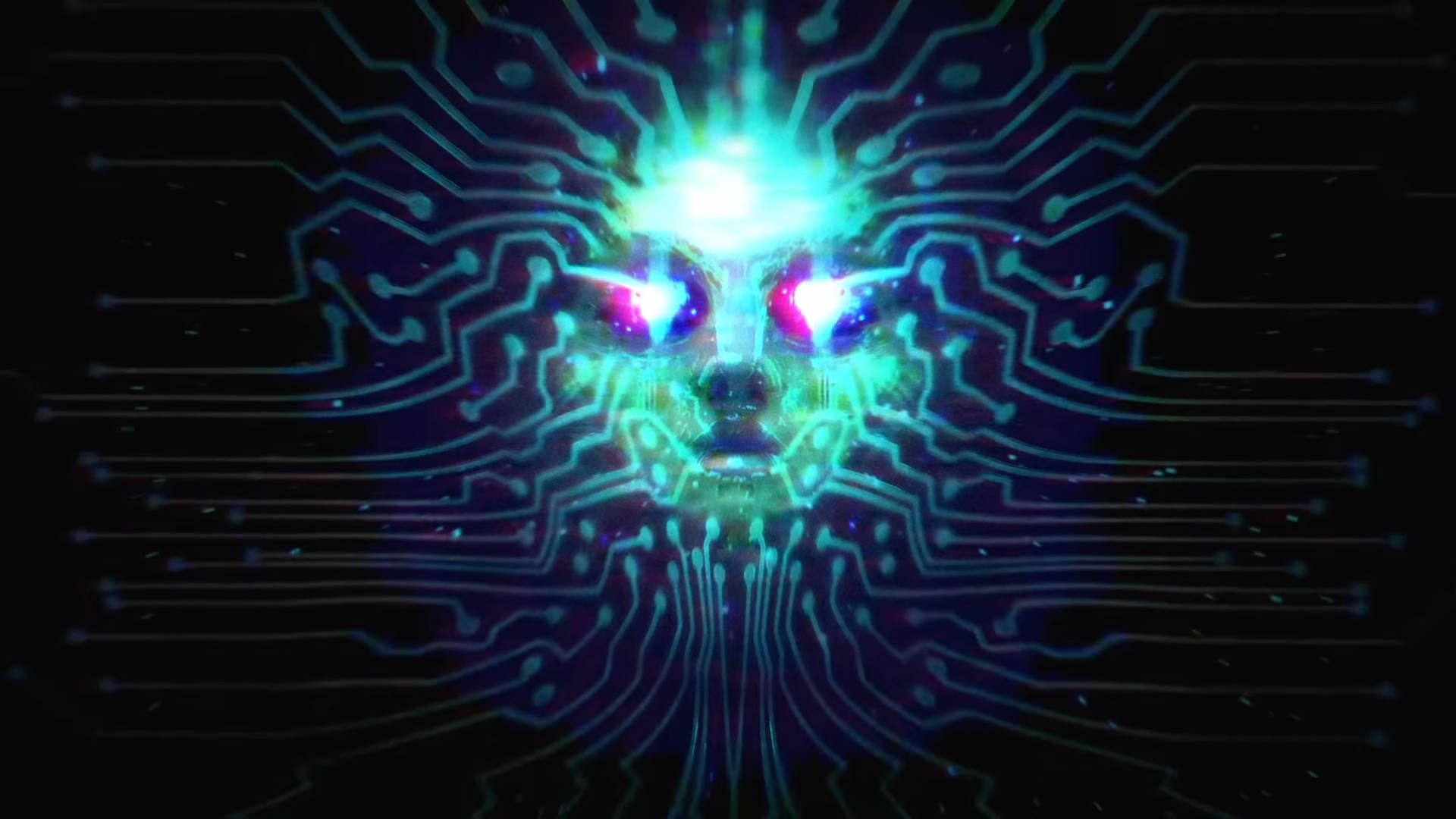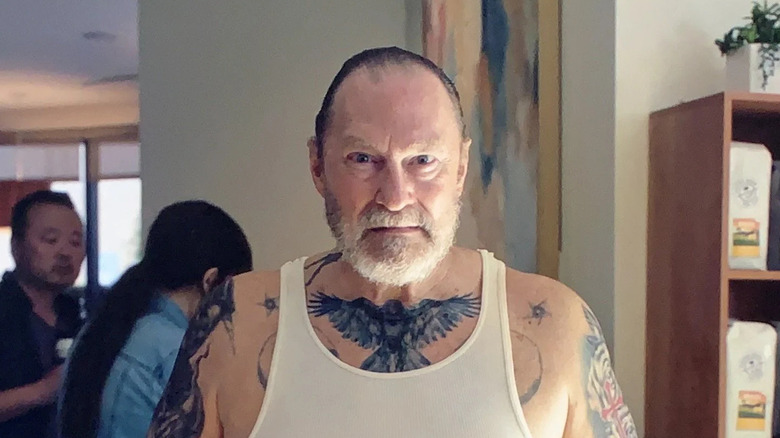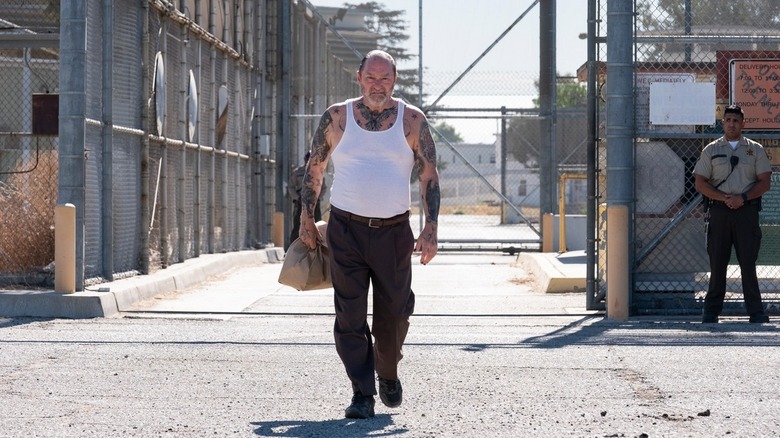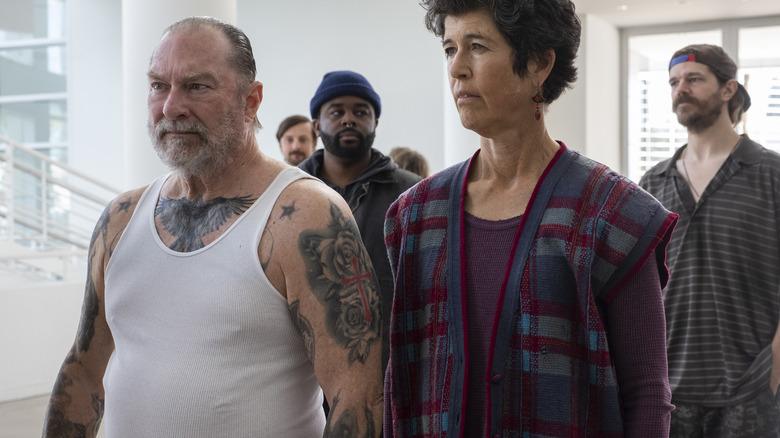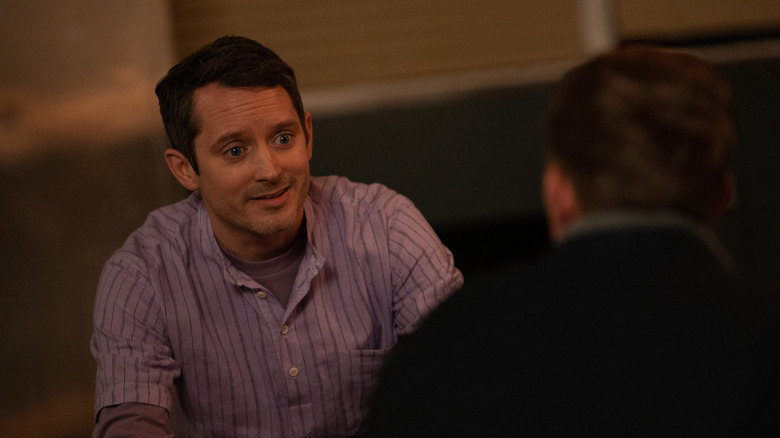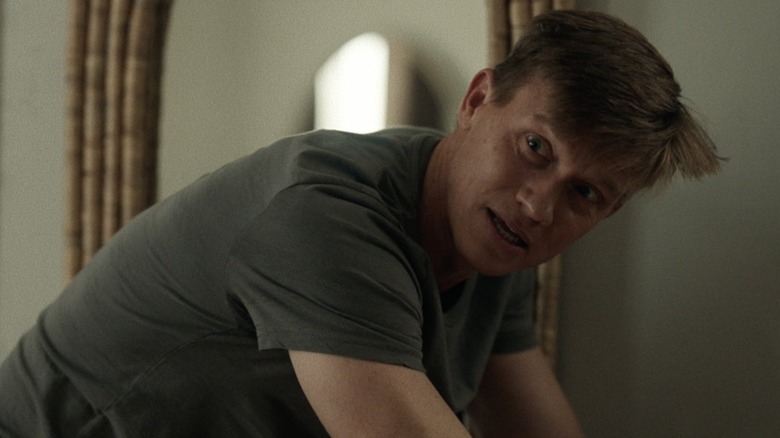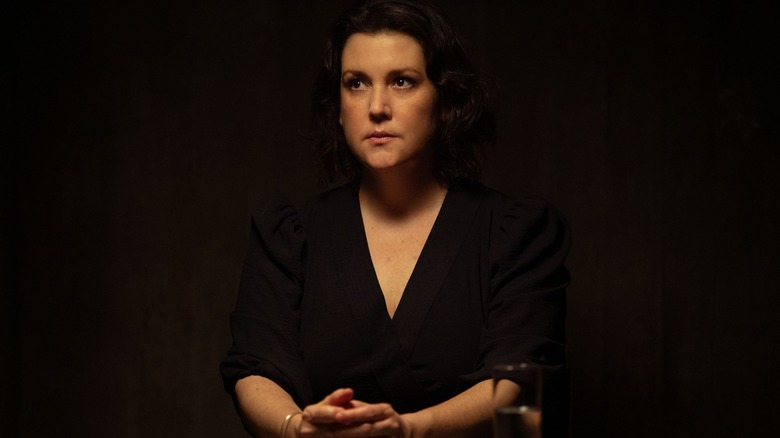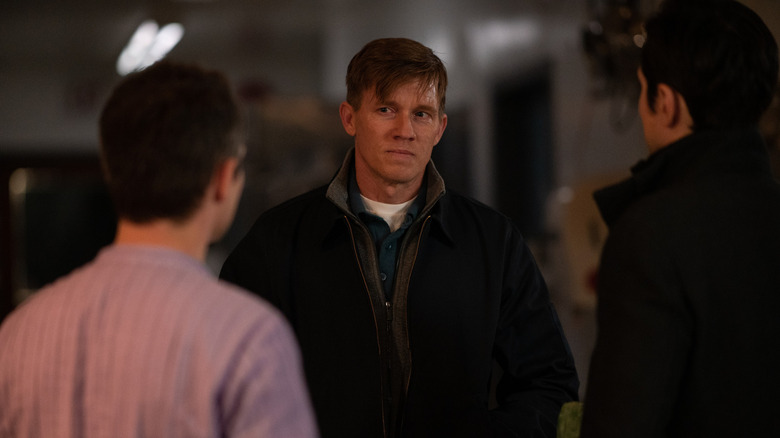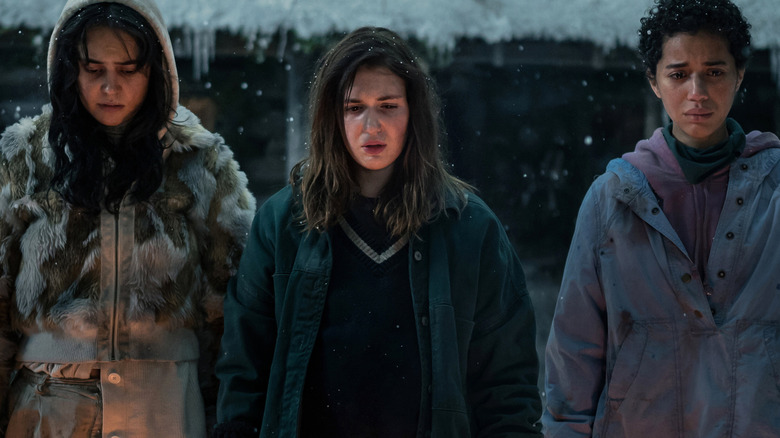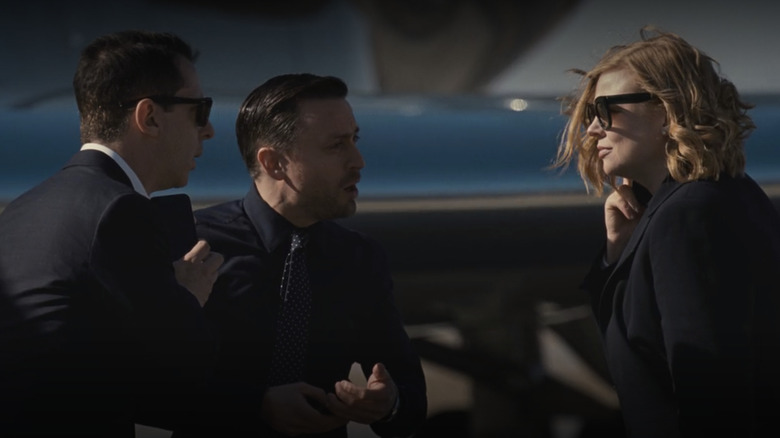
It's all over now, the big "Succession" question answered, and who can say it ended well? Well, maybe Tommy Boy can. You might not have seen the winner of the series finale coming from left field, outside of the family and the average fan's field of vision, but the biggest betrayal was hiding in plain sight. Even with silver spoons in their mouth, nepotism couldn't save the Roy siblings in the end. They failed to band together, and the boy from St. Paul took it all.
Despite the human foostooling and laughable public speaking, Tom still managed to retain a much better reputation as a boss than any of the Roy siblings. By realizing he was dispensable and presenting himself as such, he managed to become invaluable. But even though Tom ended up with the title, is he really on top?
The winners and losers might seem obvious in this one, but the shake-down is still up for debate. Roman and Shiv was a toss-up, Greg and Tom had a smack-down, but only one head ended up with the crown — and it sure as s*** wasn't a Roy.
14. Kendall, The Heir-Apparently-Not
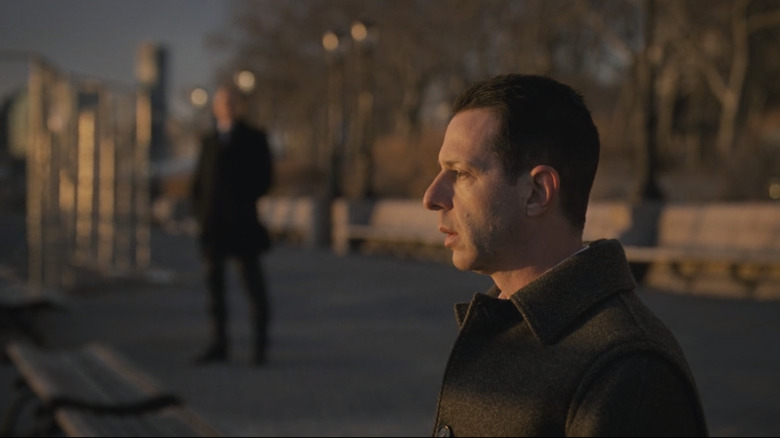
The self-proclaimed eldest Roy boy is completely lost. Kendall's been groomed for the top job from the time he was 7 years old, ever since his dad promised him a multi-billion dollar media empire at the Candy Factory in Bridgehampton. He said it best himself — he is a (defective) cog built to fit only one machine. Now, without Waystar to guide him, he is looking out into the void without anything to tether him.
The golden fail-son's empire of cards was always doomed to collapse — I mean, look at the literal collapsing house that was the Living+ presentation — but it's still a tough pill to swallow, and he's more of a powder guy. Kendall was nowhere near ready to give up this delusion, and he was riding the high of being crowned alpha dog of the family in one last twisted Roy ritual. Sadly for him, winning a game of dog pound does not a CEO make.
Kendall's darkest moment came back to haunt him in the eleventh hour, and he responded in the worst way possible: with a blatant and poorly constructed lie. With that, Kendall lost the support of both his siblings and revealed himself for what he is: made of paper, easily collapsible, or as Roman so succinctly put it, "bulls***."
13. Hugo
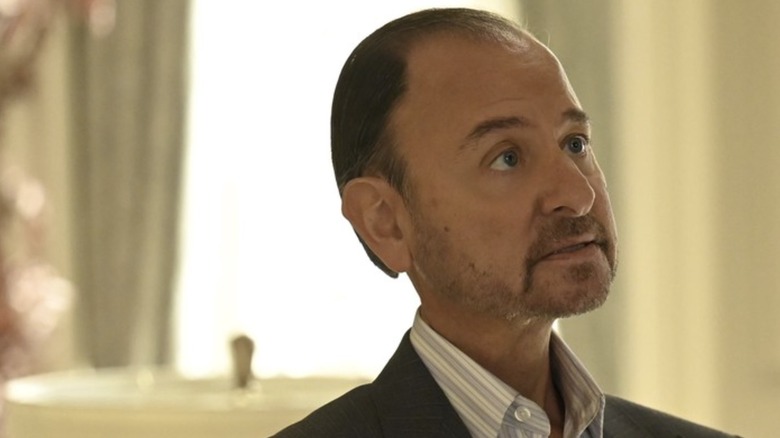
Woof, was he pulling for the wrong team! He never had a chance in hell of making anything good happen for himself, but now he's really done it. And with Kendall no longer in a position of power, who's to say how his mini-scandal is going to shake out?
If Waystar needed an excuse to fire him, they definitely have one, and he was already on the kill list. That's not to mention the problems bubbling under the surface of his personal life. His superiors on every side want his head on a spike, as Karolina reveals in one final aside to Shiv before the big vote. Meanwhile, his estranged daughter is committing white-collar crimes! Hugo didn't stand to lose as much as some of the other characters, and yet he is still easily one of the biggest losers of the episode. He might have been a minor player, but he struck out in a major way.
12. Connor Roy
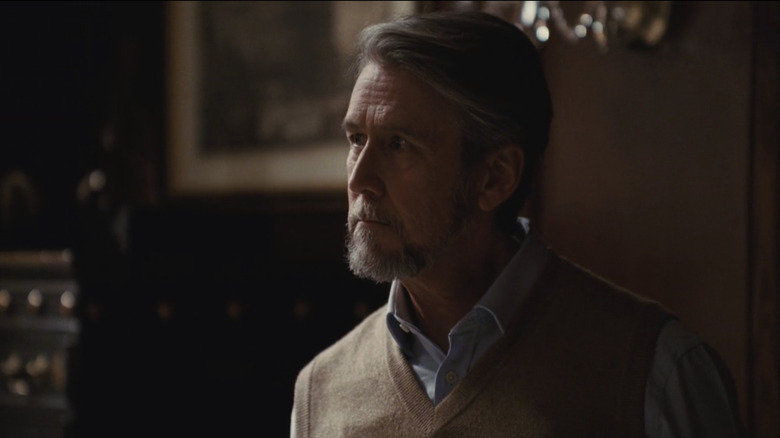
Things have been going well for Connor this season. Despite taking a big loss in the election, his delusions of grandeur got away unscathed and he still managed to score a little something from Mencken. The best thing he had going for him, though, was the unexpected success of his marriage.
What started as a very cold and transactional relationship had evolved into a rather supportive partnership. Willa has stuck up for Connor and shown him compassion time and time again. Despite the financially driven nature of their relationship, she has shown Connor an increasing amount of warmth over the past couple of seasons. But once she saw that his political ambitions weren't fading any time soon, she seemed to ice Connor out of her heart once again. Now she's planning on taking over Logan's apartment, bringing in a cow print couch, and living her best life as a Park Avenue princess while he slums it in Slovakia.
And that's the best-case scenario. If Mencken doesn't get elected, Connor is out of a job, and who knows what he's going to direct all that terrifying energy and capital into next? I wanted the Con-heads to inherit the earth just as much as the next guy, but it's not looking good for our boy.
11. The Stewpot
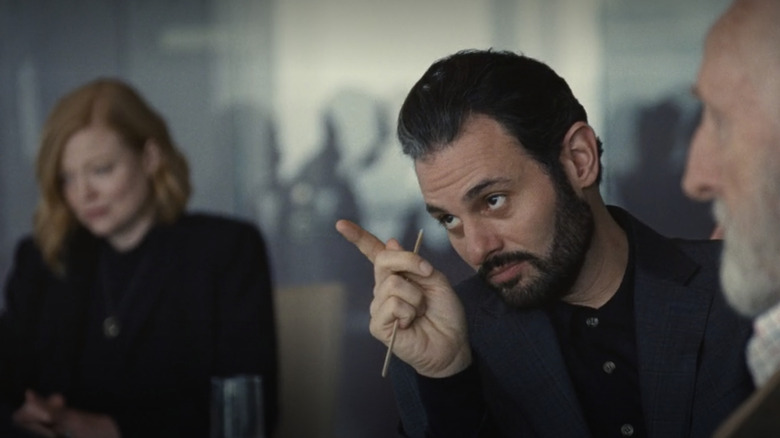
Stewy hasn't taken a lot of losses over the course of "Succession." In the past, he's always followed the money, despite the bridges that it might burn between old friends, but he's been riding for Team Kendall this season. It was eventually his downfall, but it was kind of sweet that he finally stood up for his old pal, wasn't it? After that devastating betrayal in the vote of no confidence in season one, I thought for sure that history would repeat itself this time, but I couldn't have been more wrong.
Stewy's display of loyalty was completely endearing, but it may have cost him some major points with his closest allies, the Sandies, along with any pull he could have retained with Matsson. Choosing friendship or even short-sighted greed over a well-informed business decision may have been the worst mistake of Stewy's career, but it was kind of a touching moment for a historically sleazy character. Besides, something tells me he will bounce back.
10. Vaulter Lawrence
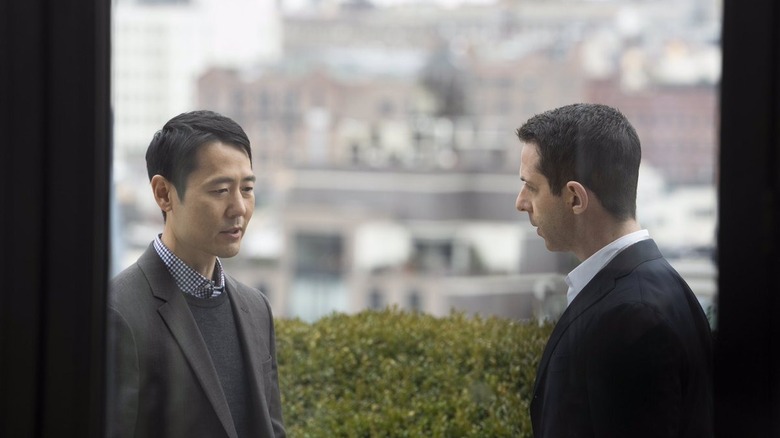
They were really teasing us by dragging this red herring back into the ring for one more round. The dejected founder of the failed Vice-like start-up that Kendall pumped with cash in season one and gutted in season two was dangled in front of the Roy siblings like a carrot on a string in this episode. He was one of the many ghosts of Kendall's past that came back to haunt him in this episode, but he didn't end up being much of a threat tangibly — merely an existential pawn in a game of chicken.
But Laurence didn't ever come back and eat them all in the end, did he? It's kind of a shame — it would have been sort of hilarious to see the underdog finally give his arch-nemesis his comeuppance. Unfortunately, he was nothing more than a little bait and switch to scare the sibs. That'll be a smokescreen, I'm afraid.
9. Roman The No-Showman
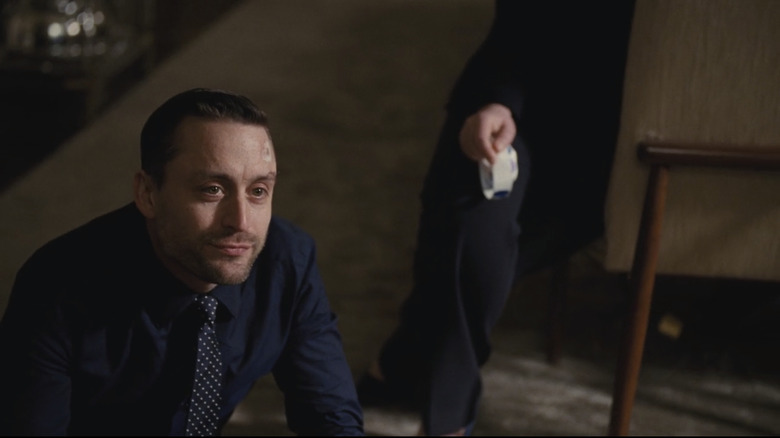
The runt of the Roy litter might be crazy, but he's finally free. Roman arguably came out of the finale better off than either of his siblings, actually. The only reason that he's lower on the list than Shiv is that he had no leverage in this episode. He was totally hopeless the entire time. There was no world in which Roman was going to rebel against Kendall. He never could have been the CEO, and he never would have gotten onto Matsson's team. Voting for Kendall was his only choice.
Roman has done a terrible job in his short time as CEO but, unlike Kendall, he started to realize just how incapable he truly was. With the company totally out of his reach, the pressure is taken off of his shoulders. He's back where he was at the beginning of the series but without any glimmer of hope to keep him on the hook.
He understood that he and his siblings were all "bulls***" and that they would run their father's company into the ground, which is why he'll be better off than either Kendall or Shiv, who both believed they could run it well. Since he was already hopeless, he was able to accept the loss and understand that it was the best possible outcome. Now he's just insanely rich and devoid of responsibility. Oh no! What a terrible fate! All told, he just got several hundred pounds lighter and several hundred million dollars richer — all in all, not such a bad day for Rome.
8. Shiv Roy, Beloved Wife And Mother
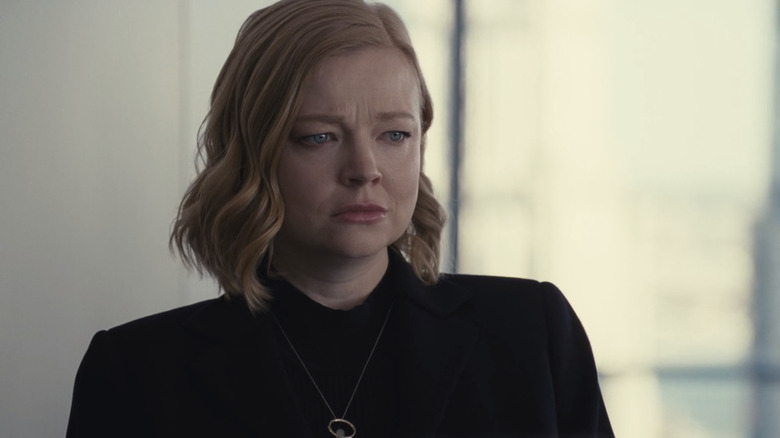
The minute someone says they've won in "Succession," you know they're in trouble. Shiv got cocky and started counting her chickens. She was doing victory laps around her brothers at the beginning of the episode, starring in a political cartoon as Mattsson's puppeteer, and by the end she had nothing. In a classic Shiv move, she jumped the shark once again.
Using her final piece of leverage to pull the rug out from under Kendall has earned her a higher spot on the list than Roman. It was her only power move, but it also killed any chance of her and her family having sway over the company. But, hey, Shiv's still pulling Tom's strings, right? She wanted Tom back at the beginning of the episode and she got him, right?
Well, not exactly. The power dynamic between Tom and Shiv was totally upended the minute he betrayed her at the end of season 3. Shiv was able to gain an advantage over him again after Logan died and he was sent into free-fall, but once he got a taste for power — and she a taste of betrayal — things were never going to be the same between them.
Even still, Shiv ended up the wife of a powerful man, the only remaining link to her family's company. That doesn't seem like such a bad shake for most, but for Shiv, it's her perfect idea of hell. She's cursed to become her worst fear: her mother — married to the CEO of a media empire, stuck caring for children she never really wanted.
7. Frank And Karl
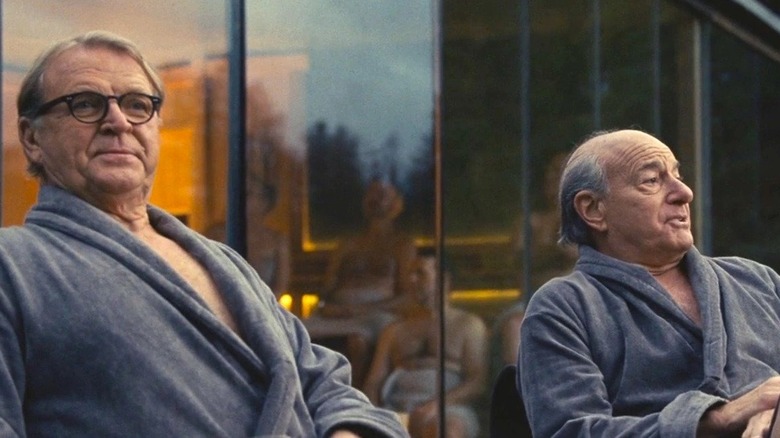
Karl pretty much got exactly what he wanted, his beanpole fully buttered, but he didn't have to do anything and couldn't have even if he wanted to, which is why he is sitting comfortably in the middle of the list. Frank on the other hand commanded the room, cornered the vote, and came off calm, cool, and collected in his final act as board chairman. He was on Matsson's kill list, so it confused me that he was advocating for the deal at first. However, I am entertaining the idea that this was Frank's plan all along.
Maybe, like Karl, he just wanted a big payout so he could live out the rest of his days in peace. After all those years of rebelling against the big boss, maybe Frank just didn't want the smoke this time. Kendall and Roman each offered him a chance to turn against the deal, and he turned them down.
I think Logan's death made Frank realize that he might not have much life left to live and that he might prefer living it outside of a board room. Or maybe he had some noble motive, like carrying out Logan's wish to sell. Whatever his reason, Frank pulled off a bit of a win for himself.
6. Karolina
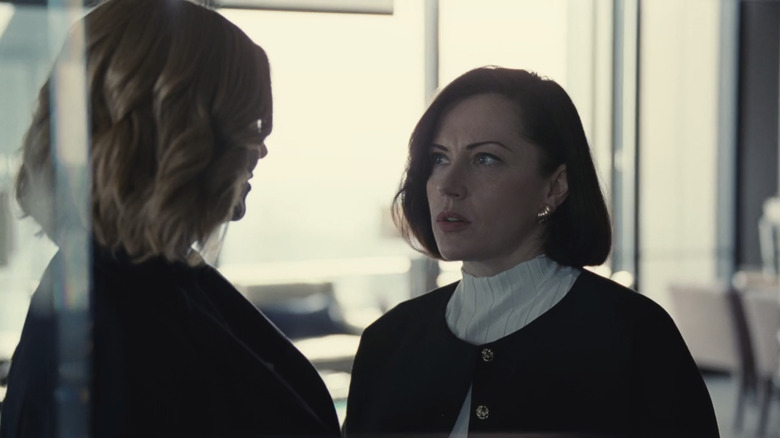
Karolina also had a bit of a silent victory in this episode. She was never on the kill list, so her job was always safe as long as the Gojo deal went through, and it did. There might even be room for her to move up the food chain, given Lukas' major tension with his own communications head and her desperate desire to quit. At the last minute, we learn what Karolina really wants: to get Hugo out of the way. It's obvious that she was smart and good at her job, so it's likely that she caught wind of his secret PR coup with Kendall. She must have sensed that he was angling for her job and decided to do damage control with a fellow girlboss — just covering all her bases.
Since Hugo was on the Gojo kill list, it would seem that Karolina got what she wanted the moment Lukas took over the company. Congratulations to Waystar's head of comms for knocking out the competition! Let's hope for Ebba's sake that she's feeling "refreshed" enough to face such strong new blood closing in on her territory.
5. Gerri
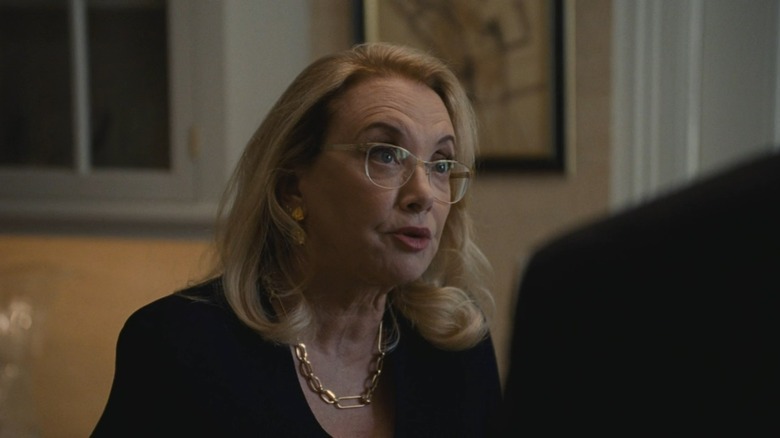
Gerri didn't say a word this episode — besides her naughty limerick in an old video — so you might be wondering what she's doing on this list in the first place, let alone in the top five. The truth is Gerri didn't even have to speak to make waves – all she had to do was walk into the building for Roman to totally collapse.
She didn't even have to advocate for herself for Tom to want to bring her back into the fold. The trusted advisor proved herself as a loyal soldier and wise counsel over the years. Despite Logan and Roman's last-minute switch-up on her, she still managed to hold onto her favor with the new leadership. Gerri has always said she's on the side of the company, and in her final appearance on the show, she wordlessly proved it.
Roman might have done Gerri a favor by betraying her. She no longer had to go to bat for someone so reckless, and she was able to take the side of the winner without getting her hands dirty. She was schooled by a barbarian by the name of Logan Roy, and she was always going to win in her own subtle way. It might've been Frank and Karl in the press release, but Gerri is waiting in the wings to steal their supporting role.
4. Willa
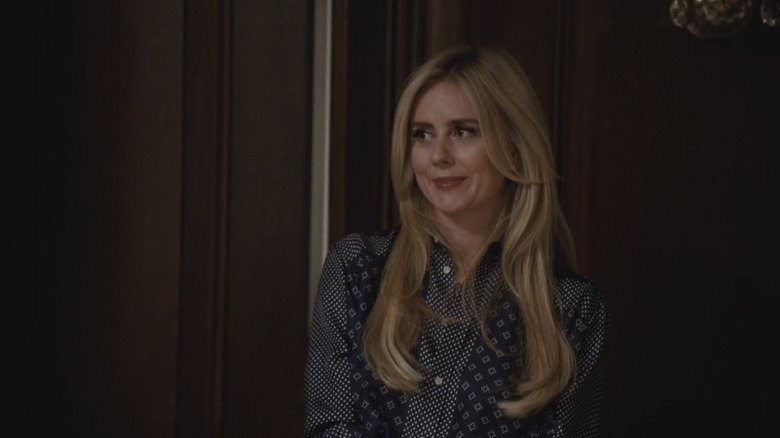
Connor's trophy wife is already plotting to put a cow-print couch in her brand new forty-million Park Avenue apartment and develop a brand new play while her financier flies off to Slovakia.
Willa has finally gotten wise to the darker side of Connor's politics and seems to be taking a bit of a private stand with him by putting some distance between them. Their relationship has changed shape quite a bit over the years, and she seems to be doing a bit of a return to form, reverting back to a more traditional sugar baby structure. As a Con-head, I hate to see it, but as a woman, I can't help but salute it.
Maybe I'm nuts, but I'm still holding out hope for those crazy kids. Either way, seems like kind of a win-win situation for Willz here. Worst case scenario she gets another insanely awful play developed and gets to indulge in her own delusions a little more. But can't a girl sink a few million dollars into some misguided ambitions as a treat?
3. Greg, The World's Highest Paid Assistant
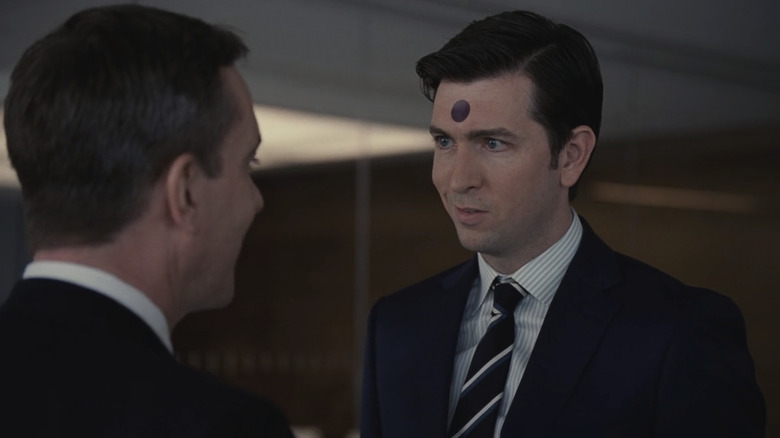
This one was a bit of a rollercoaster for Cousin Greg. He tried to make the quad happen, but it was never going to happen. He's never been a great negotiator, but this time he had "something incredible" to bring to the table — however, being the shark that he is, he would only off it up in exchange for "something amazing." Greg the Egg put his eggs in the wrong basket, but luckily he'd been Gregging for Tom long enough to earn a little bit of sway with him. Even when Greg goes full Judas, you can't make a Tomlette without breaking a few Gregs.
Tom sniffed Greg out as his competition for number one sidekick and totally subdued him in the very first episode. Just when it seems like Greg might escape from under Tom's thumb, like when he makes copies of those papers from the cruises scandal, he gets sucked right back into Tom's orbit. Luckily for him, the only guy that really ever cared about keeping Greg around — for better or worse — ended up winning it all.
Even though Greg betrayed Tom and Matsson in a big way and even got into a bit of a scuffle with the CEO-to-be, he still managed to score a spot on the winning team. Considering how badly he struck out this episode, Tom crowning him with a sticker was the only outcome Greg could have asked for. As Tom put it, Greg totally f***ed it, but despite all his wobbling he still managed to stay at the foot of the table somehow. Three cheers for Greg, right guys? Right? We all still like him?
2. Tom The Dry Cleaner
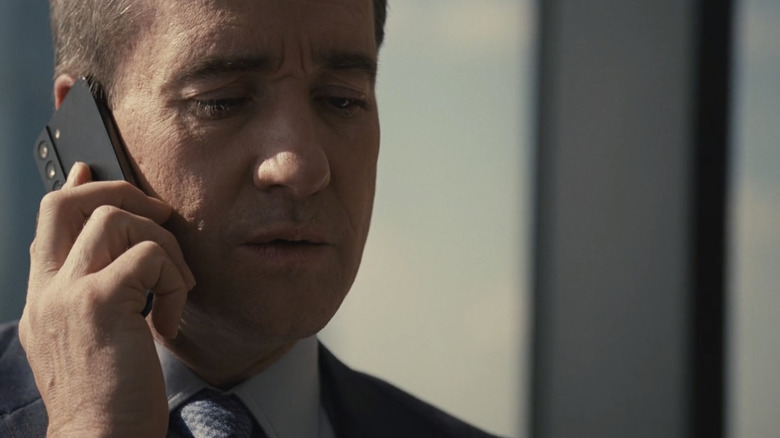
Tommy-wammy just got three outs in one play! The boy from St. Paul has finally pulled off a major power move and silently mended his marriage in the process. He's still not at the top of the pyramid because, at the end of the day, he's still just Lukas Matsson's "pain sponge." Still, as the one true U.S. CEO, it seems all Tom's years of s***-eating have finally paid off. This guy is always able to suss out a winner and, better yet, he gives them what they really want — a loyal servant who is going to act thoughtlessly on their behalf. Men like Lukas and Logan might think they want someone clever at first, but ultimately they need someone they can push around. There can only be one alpha dog, and this time, there's no threat of him retiring or dying any time soon.
Logan always had a soft spot for Tom's self-made quality, so there was always a bit of a shape for him as the man in charge. Time and time again he's proved himself as someone willing to take a hit, yet capable of dodging a major bullet. He was willing to be held responsible for crowning Mencken or corrupting cruises, and none of Waystar's major crimes ended up falling on his shoulders. He was always willing to be number two, and he knew how to pick a number one, which is why he ended up exactly where he wanted to be. After watching him take loss after loss the past few seasons, it's honestly hard not to feel proud of him.
1. The Swede
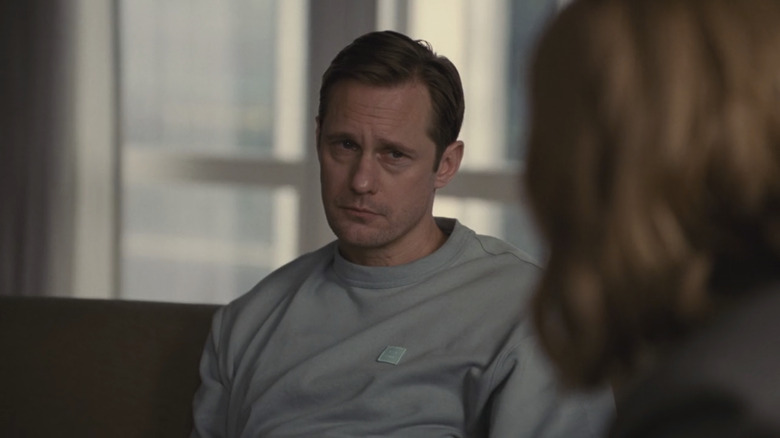
It's Logan Mark II, only this time he's f***ing sexy! Matsson totally Logan-ed it because, let's face it, he's the only one that can. Matsson does everything that the old man wished his children would do. He can take a joke, he can dominate a room, and he can run a company. Brian Cox, whose performance as the late Murdoch-like media titan earned him a Primetime Emmy, argued that Matsson was more like Logan than any of his children.
"He's clear, he's bright, he's creative, and he doesn't let get things get in the way," Cox said of the Gojo CEO in an interview with Variety. "[Logan] just wishes some of his kids had that quality that Lukas has."
Things were looking a little wishy-washy at the end there, from the funky India numbers and the blood bricks to the last-minute change-up with Shiv, but in the end, Matsson was still the clear winner. Logan knew that he and the technology he represented were unstoppable, which is why he submitted to a sale. And if Logan couldn't beat Matsson, there was no world in which his children were going to succeed at it.
Let's face it, even if they had maintained a united front, the Roy siblings are damaged children that would have run their father's empire into the ground. The only set of hands that were evenly remotely capable were the ones that the company ended up in. Maybe no one was ever going to be a perfect fit, but Logan got his dying wish, and there's some satisfaction in that, isn't there?
Read this next: The Best TV Shows Of 2022, Ranked
The post Succession Power Ranking: With Open Eyes, We See The Clear Winner appeared first on /Film.
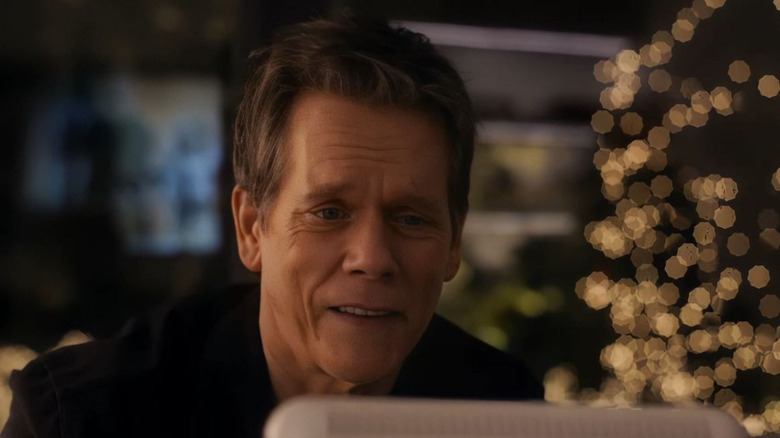
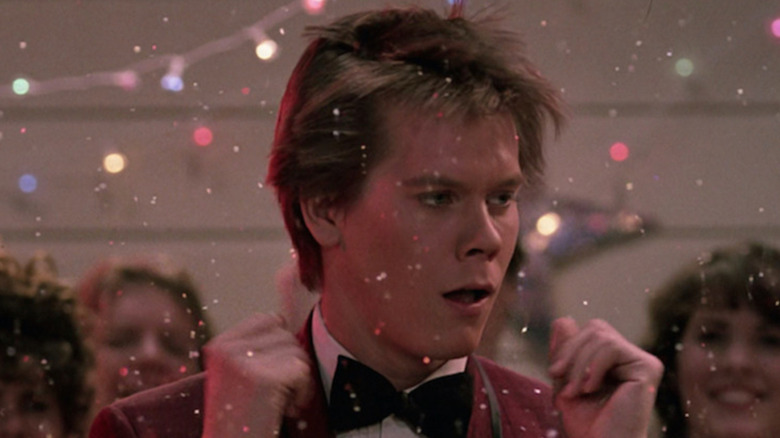
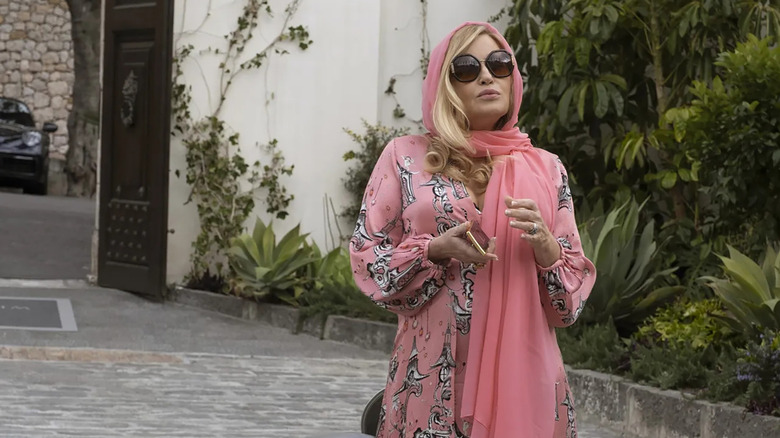

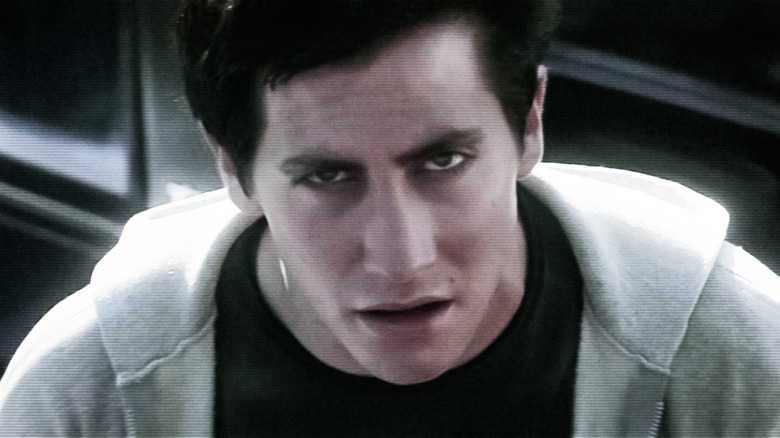
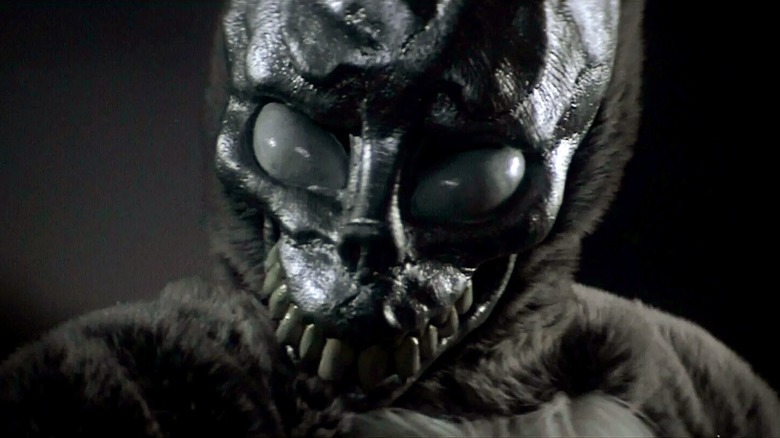
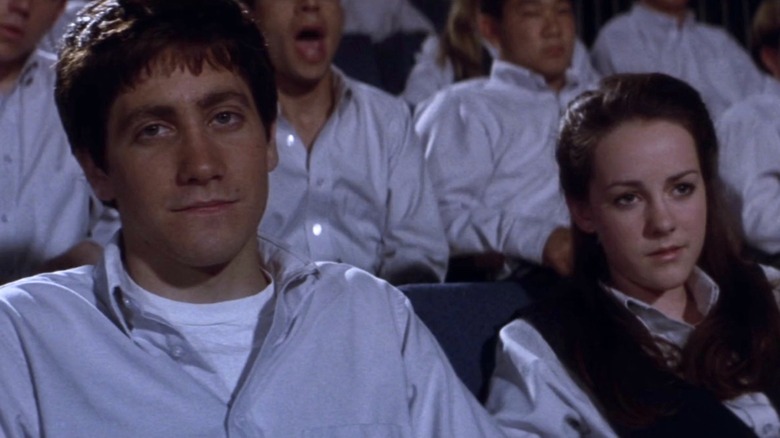
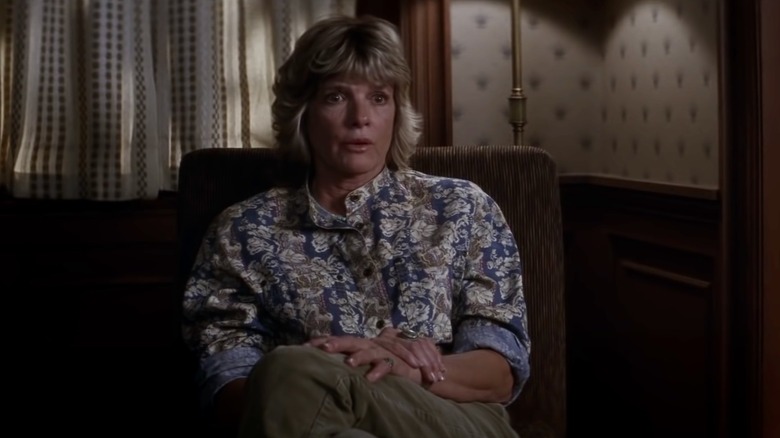
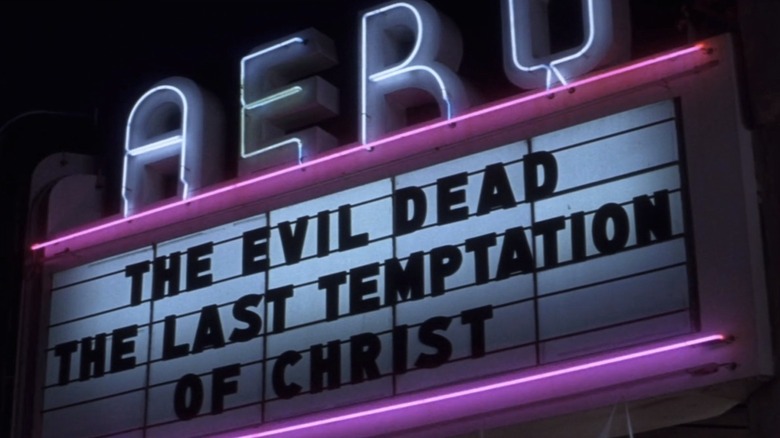
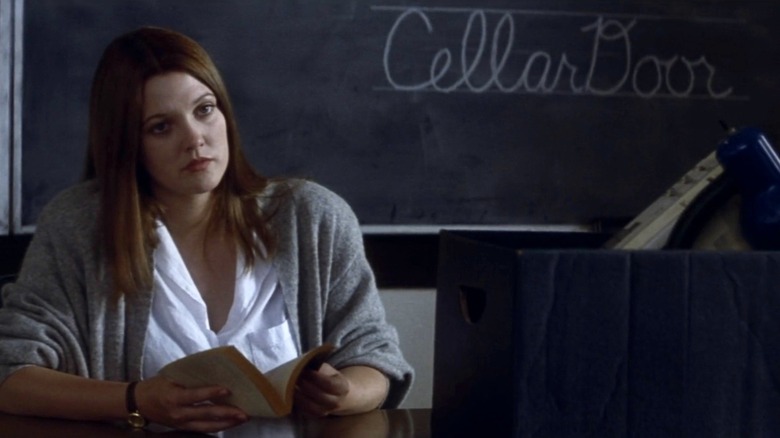
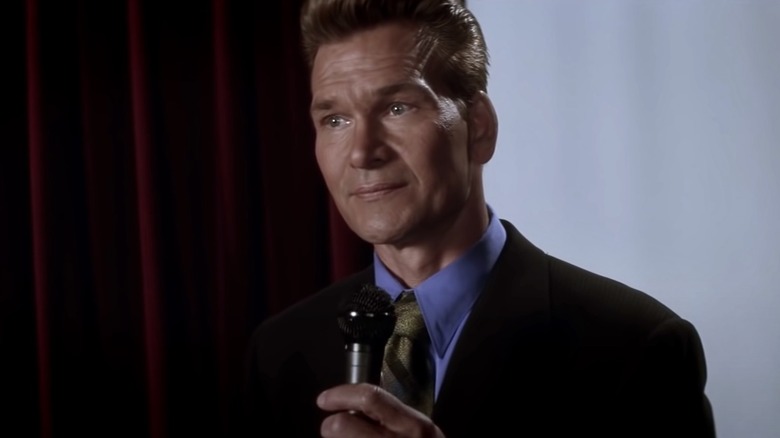
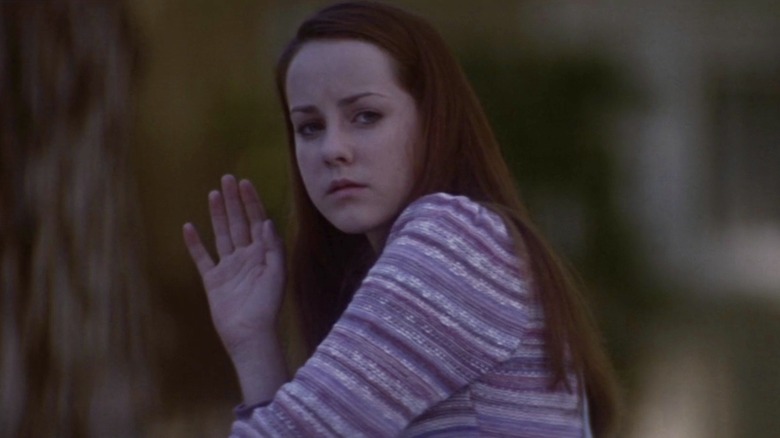
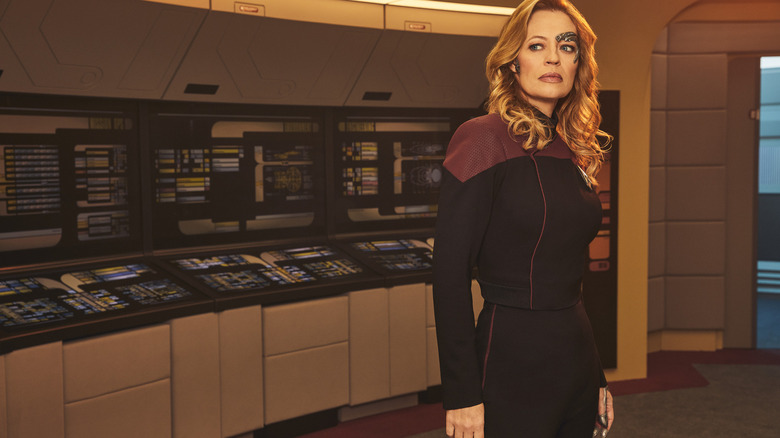
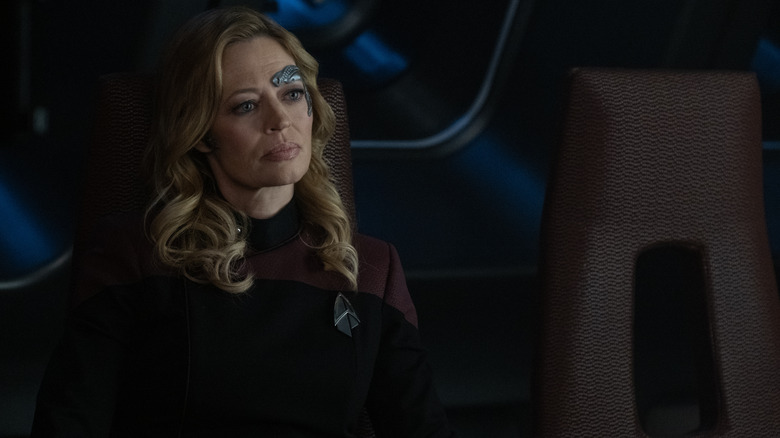
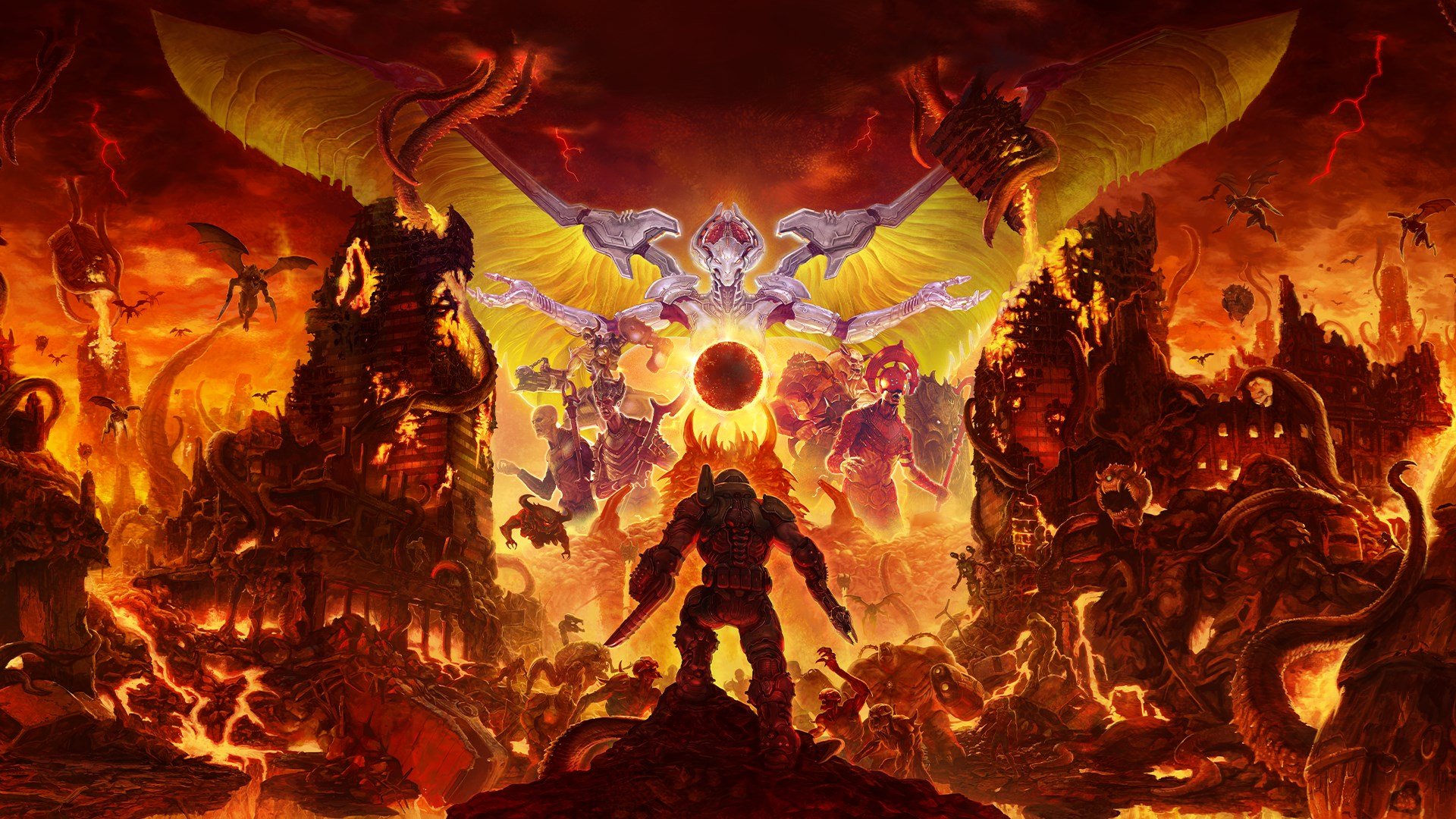
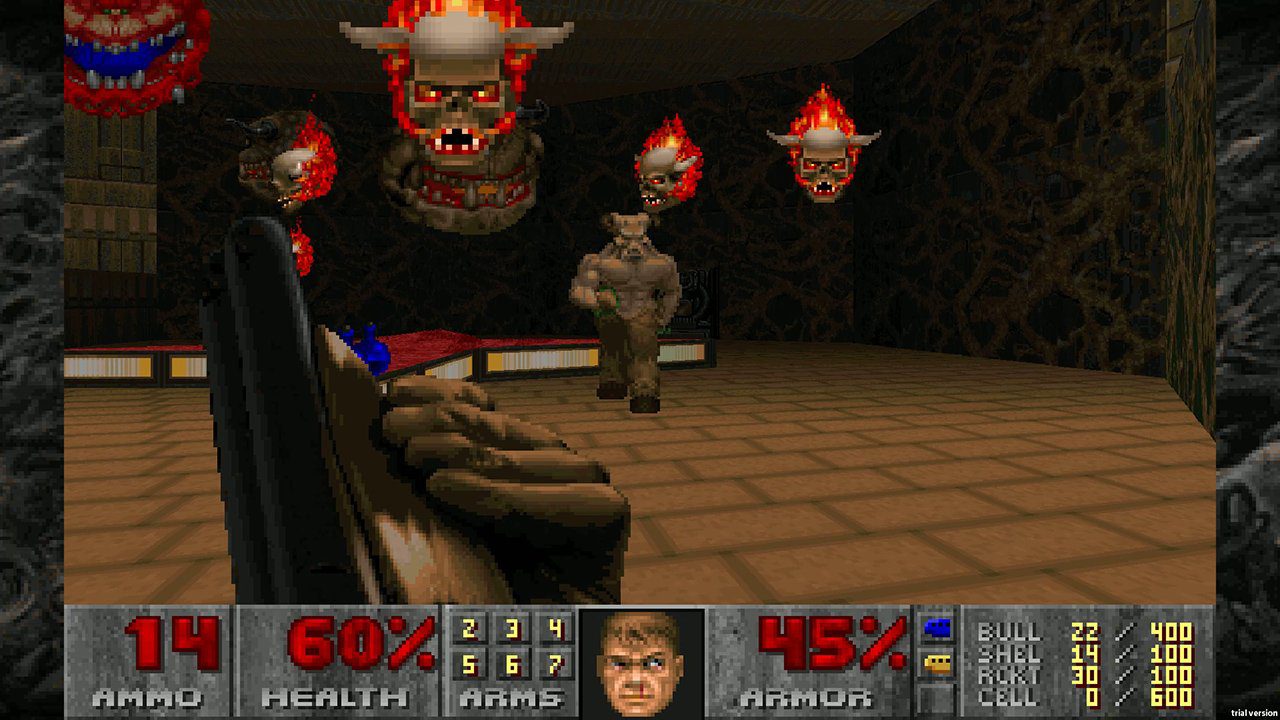 Screenshot by Destructoid[/caption]
Screenshot by Destructoid[/caption]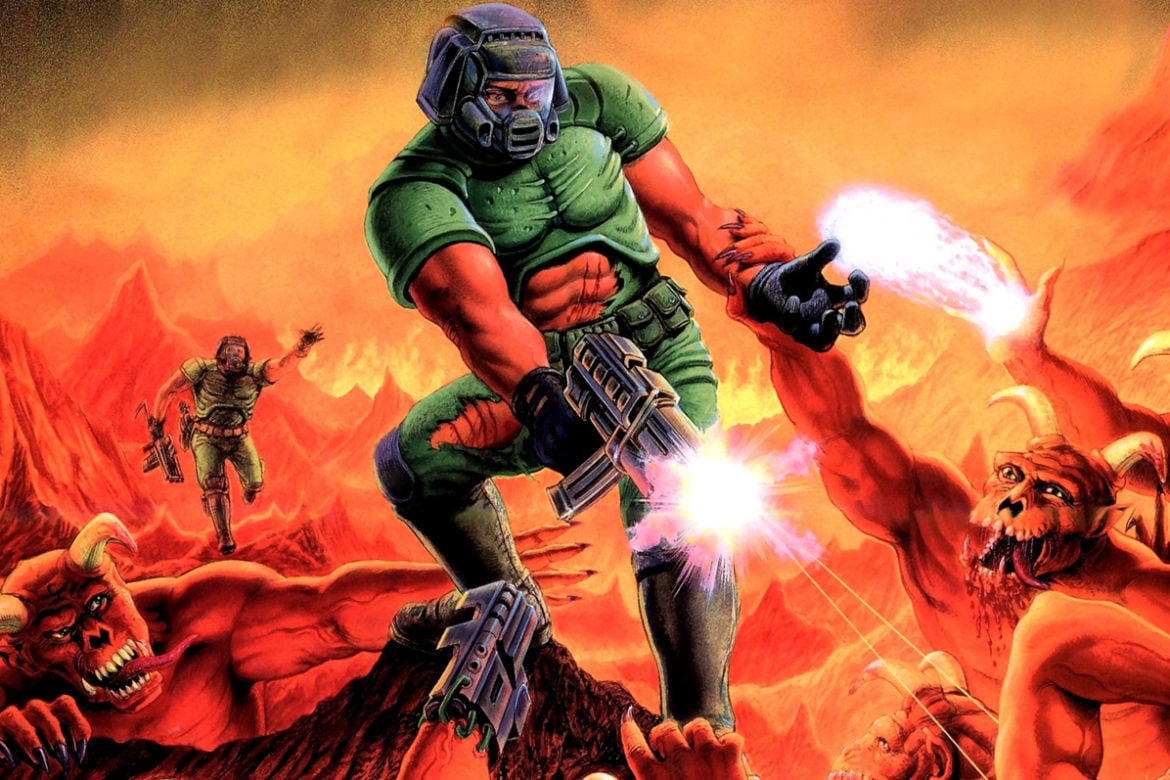 Image by Bethesda[/caption]
Image by Bethesda[/caption] Image by MobyGames[/caption]
Image by MobyGames[/caption] Image by Romero Games[/caption]
Image by Romero Games[/caption] Screenshot by Destructoid[/caption]
Screenshot by Destructoid[/caption]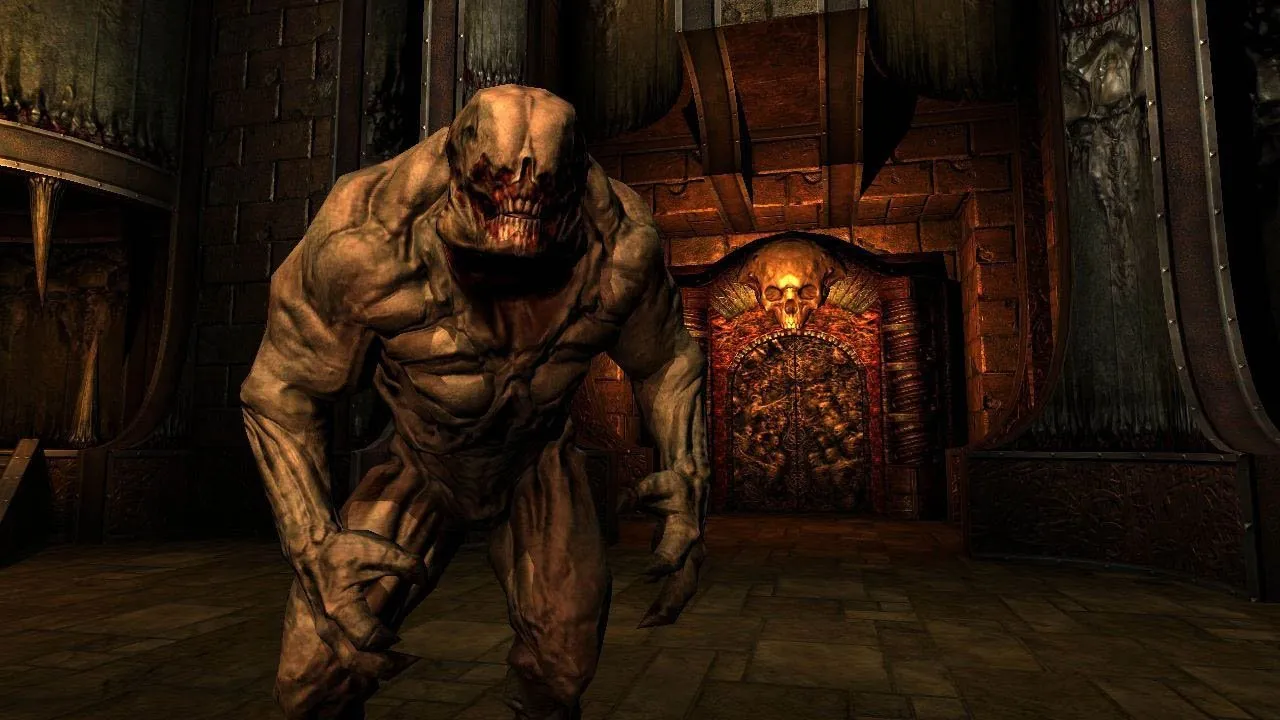 Image by Bethesda[/caption]
Image by Bethesda[/caption] Image by MobyGames[/caption]
Image by MobyGames[/caption]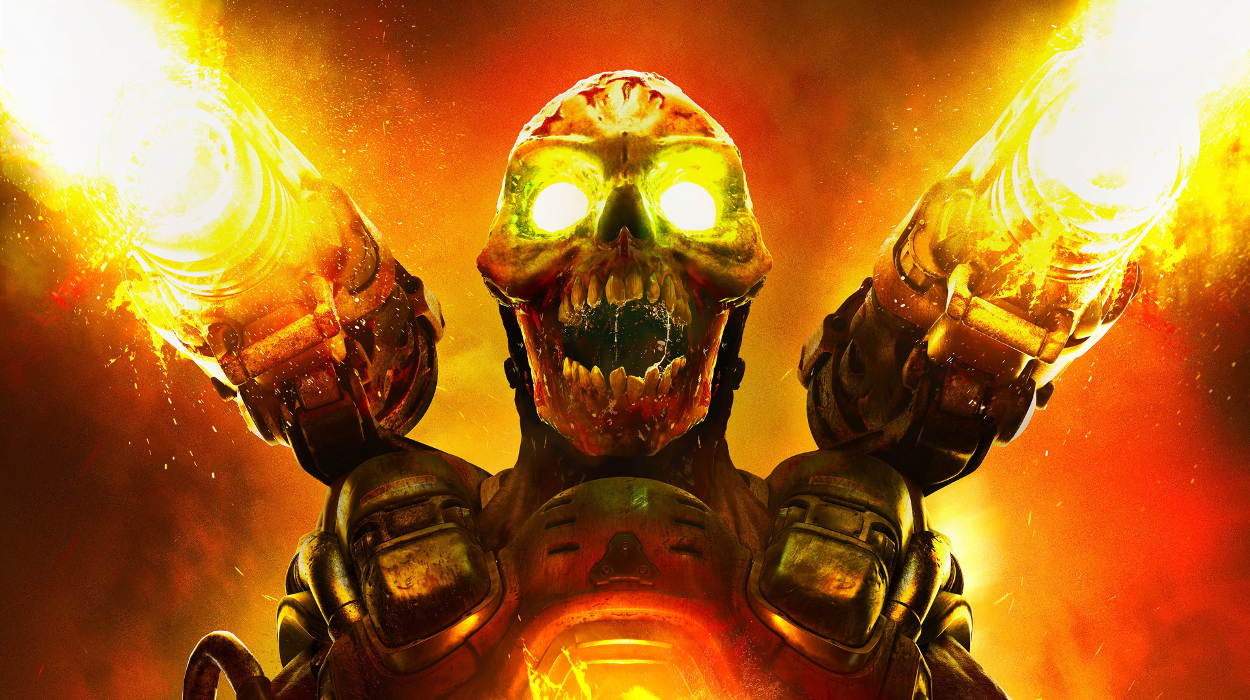 Image by Bethesda[/caption]
Image by Bethesda[/caption]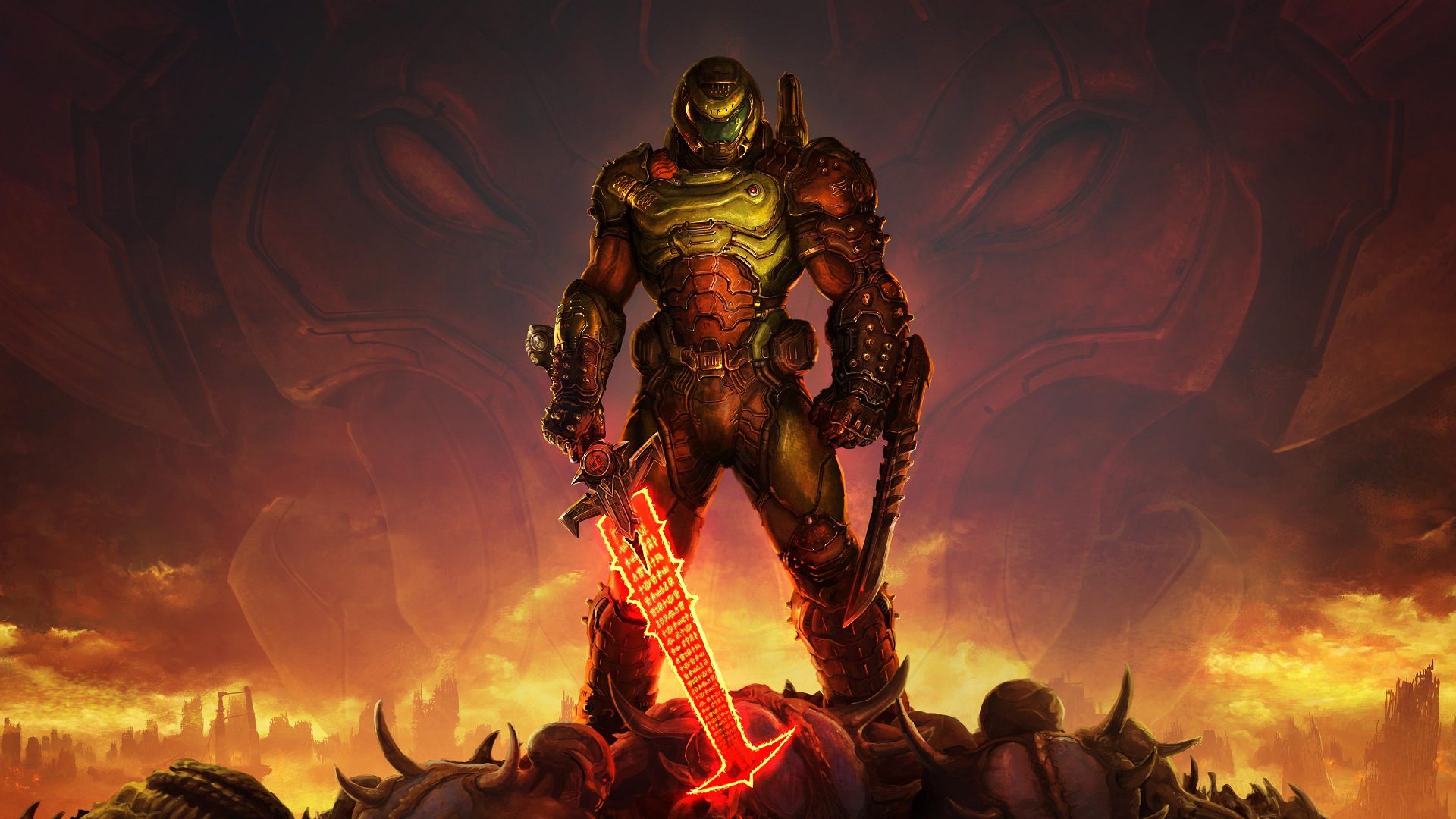 Image by Bethesda[/caption]
Image by Bethesda[/caption]